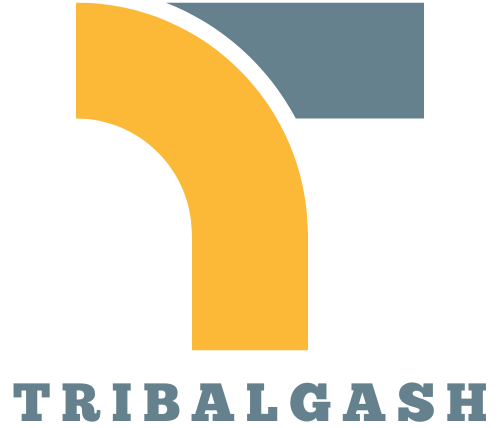In the age of AI, students are turning to tools like ChatGPT for a quick academic boost. But let’s face it—using AI can feel like sneaking snacks before dinner. It’s tempting, but what happens when your professor catches you with your hand in the cookie jar?
Table of Contents
ToggleUnderstanding ChatGPT and Its Capabilities
ChatGPT serves as a powerful language model designed to assist with various writing tasks. It generates human-like text based on prompts, making it a popular choice among students. The tool can produce essays, summaries, and responses to questions, supporting users in their academic efforts.
Understanding its capabilities is crucial. ChatGPT can provide information, suggestions, and even improve writing styles. While it offers convenience, students should use it judiciously, as the originality of their work remains essential.
Professors may identify AI-generated content through specific indicators. Unnatural phrasing, repetitive ideas, or inconsistencies in tone often signal inadequate human input. Each of these signs can lead to suspicion regarding the authorship of submitted work.
Awareness of academic integrity principles becomes vital. Many institutions emphasize original thought and personal analysis. Submitting AI-produced text can violate these standards, resulting in severe academic consequences.
Utilizing ChatGPT can enhance understanding of certain topics. However, reflecting personal thoughts in assignments ensures authenticity. Students can engage with the content generated by the tool, allowing them to develop their ideas, insights, and connections.
Evaluating the output critically ensures clarity and accuracy. Students should edit and rewrite suggestions from ChatGPT, personalizing the content to fit their voice. This approach helps maintain ownership of their academic work while capitalizing on AI’s strengths.
Significance of Academic Integrity

Academic integrity plays a crucial role in maintaining the credibility of educational institutions. Upholding this integrity reflects a commitment to honesty and ethical standards in academic pursuits.
The Role of Originality in Academia
Originality serves as the foundation of academic success. It demonstrates a student’s understanding of the subject matter, highlights critical thinking skills, and shows creativity in problem-solving. Faculty members expect students to present personal insights and unique interpretations. Authentic work fosters a culture of trust and respect among students and educators. Delivering original content contributes to the overall quality of academic discourse. Moreover, it reinforces the value of personal effort and learning processes in education.
Consequences of Plagiarism
Plagiarism carries significant risks that impact a student’s academic journey. Institutions may impose severe penalties, such as failing the assignment or course. Disciplinary actions can also lead to suspension or expulsion. Beyond academic repercussions, reputational damage can hinder future educational and career opportunities. Faculty members equipped with tools to detect plagiarism maintain academic standards. Furthermore, lacking personal accountability diminishes a student’s academic growth. Understanding the consequences emphasizes the importance of authenticity in assignments.
How Professors Identify AI-Generated Work
Professors apply various methods to determine whether students submitted AI-generated content. These approaches include recognizing specific indicators and employing advanced detection tools.
Common Red Flags in Submissions
Inconsistencies often signal AI-generated text. Unnatural phrasing raises immediate suspicions, as does a lack of personal voice. Additionally, generic responses that lack depth or critical insight frequently point to non-original content. Professors may notice abrupt topic shifts or irrelevant tangents within the writing, further betraying the use of AI tools. An absence of unique interpretations leads to further questioning of authorship. Quality of writing that appears inconsistent with a student’s previous submissions may also stand out.
Tools and Software Used for Detection
Professors utilize several tools to detect AI-generated work. Plagiarism detection software such as Turnitin reviews submitted materials against vast databases. Tools specifically designed to identify AI-generated text offer additional analysis. These systems can assess writing style and sentence structure anomalies. Faculty may also rely on originality checkers, which analyze patterns in submissions to flag suspicious text. Academic institutions often set high standards, and detection tools help uphold these benchmarks. Validators provide essential feedback to maintain the integrity of academic work.
Best Practices for Academic Writing
Maintaining integrity in academic writing requires a thoughtful approach. Students must understand the value of their unique voice and insights.
Tips to Ensure Authenticity
Authenticity shines through in writing that reflects personal understanding and perspective. Incorporating individual viewpoints enhances originality. Students can achieve this by clearly expressing emotions, experiences, and interpretations. Utilizing AI tools like ChatGPT should supplement personal effort rather than replace it. Reviewing and editing AI-generated text allows for effective personalization. Seeking feedback from peers or professors also provides a valuable reality check.
Balancing Technology and Original Thought
Technology aids academic writing but shouldn’t overshadow original thought. Embracing AI tools for research or brainstorming offers great support while encouraging deeper engagement with the material. Students must balance reliance on these tools with their own analysis and critiques. Prioritizing personal connection to the subject matter fosters more authentic work. Engaging with the content actively cultivates critical thinking skills, leading to more substantive and insightful writing. Consistently revisiting and revising ideas strengthens the academic narrative they aim to present.
Navigating the academic landscape requires a careful balance between leveraging AI tools and maintaining integrity. Students should remember that originality is key to their success. While ChatGPT can be a helpful resource, it shouldn’t replace their unique insights and critical thinking.
By focusing on personal engagement with their assignments and ensuring authenticity in their work, students can avoid the pitfalls of AI misuse. This commitment to integrity not only protects them from potential consequences but also enriches their educational experience. Ultimately, fostering a genuine connection to their studies will lead to deeper understanding and growth in their academic journey.









